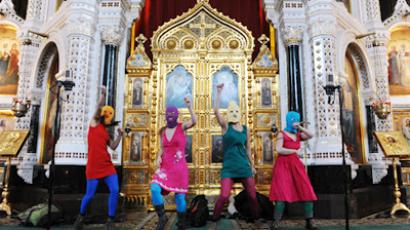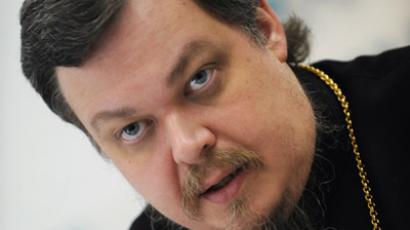Orthodox Church: Don’t probe ancient texts for extremism

A top Russian Church official has said that ancient religious texts should not be checked for extremist calls or statements, suggesting rather that more recent teachings be probed.
The head of the Moscow Patriarchate’s department for relations between the Church and Society Vsevolod Chaplin expressed this opinion at a Public Chamber session. The cleric said that courts’ recent recognition of certain religious texts as extremist merely ignited debate on whether courts should in fact decide such issues, and whether they need more expert support in this.A number of texts such as the Hindu Bhagavad Gita as It Is and various Muslim writings have been the subject of court cases regarding their potential “extremist” nature, with some subsequently banned. “It is obvious that many religious texts could and should be recognized as extremist if they had been written today. But these texts relate to completely different periods in history. Should we not introduce a precise historical point, so we can consider texts from the point of view of contemporary political and public practice? For instance, we could consider only texts written 30 or 50 years ago and later,” Chaplin said.He added that a different approach should be introduced for religious works written after the establishment of modern legal practice throughout the world, which happened only after WWII.At the same time, Chaplin said that while ancient texts cannot be “put on trial” in themselves, those who advocate their teachings should be investigated and tried.With this aim, he suggested developing a single and precise set of evaluation criteria, to minimize the influence of personal tastes.The cleric noted that even the Bible has certain quotes that, if taken out of context, would be considered as direct calls for violence. "‘A witch thou dost not keep alive’ – if you go out on the streets and start shouting this and gather a crowd that would follow this quote – this would be bad and should not be done," Chaplin said.The Russian Orthodox Church currently claims that it is under attack from unspecified “evil forces” seeking to impose evil liberal ideology in the country. Last weekend the Church held a 50-thousand-strong collective prayer in Moscow’s main cathedral to show unity and resolution in the face of adversity.














